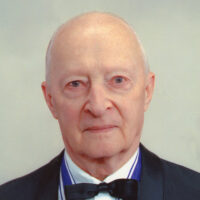
1993 Kyoto Prize Laureates
Music
/ Composer
1913 - 1994
1993
11 /11 Thu
Place:Kyoto International Conference Center
Lutoslawski in Kyoto
1993
11 /12 Fri
13:20 - 17:25
Place:Kyoto International Conference Hall
A composer representing modern Europe. Through his major works such as Musique Funèbre and Second Symphony, his works have had a powerful effect on the postwar music world. A new method of atonality, the distinctive “music of aleatory” and development of contemporary forms of musical expression have made him a master of music in the 20th century.
*This category then was Category of Creative Arts and Moral Sciences.
As a master of twentieth century music, Mr. Witold Lutoslawski is a modern European composer who has greatly influenced postwar music worldwide by introducing modern styles of musical expression, such as a new style of atonal music and unique style of “aleatory.”
Mr. Lutoslawski’s musical language begins with neoclassicism, and a work representative of his early years in Variations on a Theme by Paganini, written in 1941. Concerto for Orchstra, composed in 1954, employed a new expression unrestrained by tonality, which could be called a “counterpoint of atonality,” and while influenced by folk music, it attained an individual style transcending the realm of such folk music.
With the “thaw” of introduced in 1956 providing the momentum, Mr. Lutoslawski marked a decisive turning-point in his music with Musyka zalobra-Funeral Music, written in 1958. While the music appears to be based on a series of twelve tones, it is not necessarily so, being constructed of unique musical intervals and chords, resulting in a brilliant, well-balanced and complete structure. Furthermore, he adopted a style of “controlled aleatorism” in Venetian Games for Chamber Orchestra, written in 1961, which imbued the music with a positive significance rather than creating a mere confusion of sounds.
Thereafter, Mr. Lutoslawski continued to produce new works, represented by Second Symphony (1967), Cello Concerto (1970), and the Chain Series in the 1980s. While responding to the spirit of the age, he has actively pursued new realms in musical expression. The balanced coexistence of innovative technique and profound spirituality in his musical style not only creates a deep impression on the audience, it also demonstrates in the broadest terms the possible future of music, and serves as a fine example for modern musicians.
Since the 1960s, Mr. Witold Lutoslawski has actively engaged in musical activities worldwide, and as a twentieth-century composer representative not only of Europe but of the world, he is most eligible for the 1993 Kyoto Prize in Creative Arts and Moral Sciences.
Profile is at the time of the award.